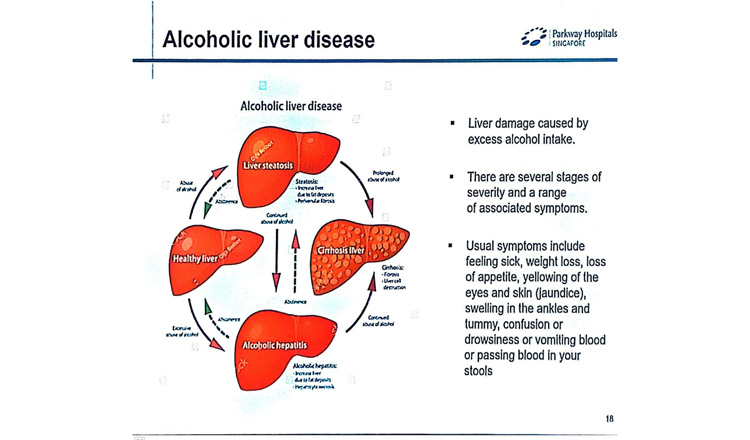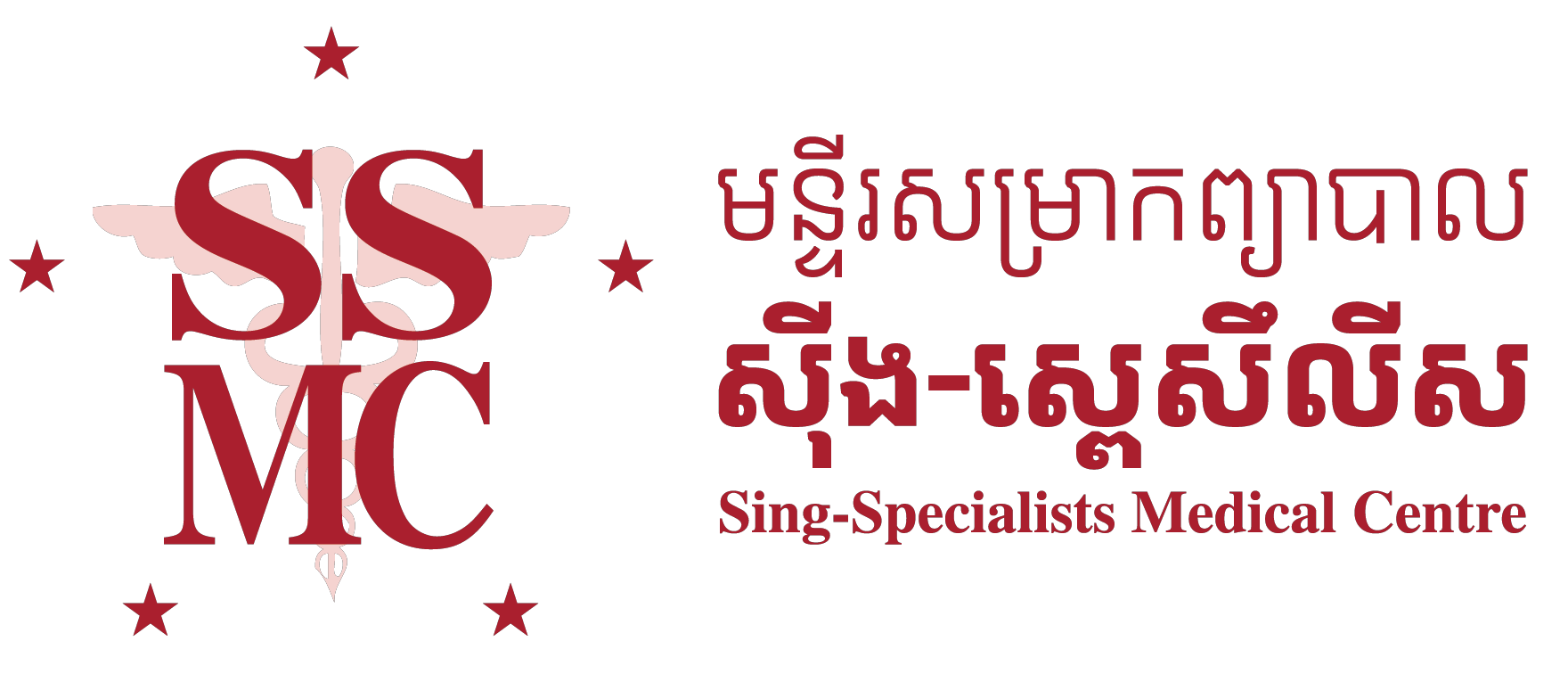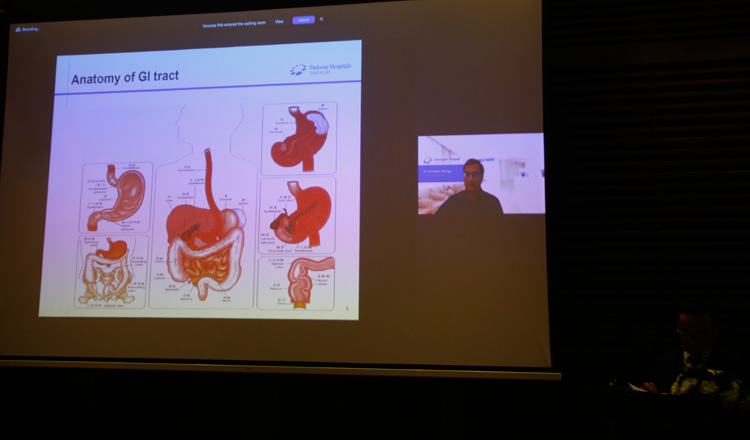SSMC in collaboration with Parkway Hospitals recently organized another health talk, this time on the liver – a very important part of the body.
Dr. Amitabh Monga, the special guest doctor, spoke about the causes, effects of and precautionary measures against diseases of the liver. Dr. Monga is a gastroenterologist practicing at Gleneagles Hospital, Singapore. He is experienced in both general gastroenterological and hepatological conditions. His subspecialty is in therapeutic endoscopies such as endoscopic retrograde cholangiopancreatography (ERCP), oesophageal, duodenal, and colonic stenting, double-balloon enteroscopy, percutaneous endoscopic gastrostomy, and video capsule endoscopy.
Dr. Monga had previously spent 11 years in Tan Tock Seng Hospital (TTSH). He is currently a visiting consultant at TTSH and Khoo Teck Puat Hospital, Singapore. He received his Bachelor of Medicine and Bachelor of Surgery (MBBS) from the University of Delhi, India, in 1995 and completed his post-graduate degree in internal medicine in 1999. He attained his Membership of the Royal Colleges of Physicians of the United Kingdom in 2005 and pursued his specialist training in gastroenterology at TTSH. Dr. Monga was accredited as a specialist in gastroenterology in 2009 and received his Fellowship of the Royal College of Physicians of Edinburgh in 2013. He was awarded the Health Manpower Development Plan scholarship by the Ministry of Health, Singapore, in 2010, and completed a fellowship in advanced therapeutic endoscopy and ERCP at the Asian Institute of Gastroenterology (AIG), India.
He was an invited faculty at GIHep Singapore 2013 to 2018 and also at Singapore Hands-on Live Endoscopy Course (SHOLEC) in 2014 and 2015. Dr. Monga was awarded the Yong Loo Lin Medical School Dean’s award for teaching excellence for 2008 and 2009. He played an active role in teaching medical students and was a core faculty in the postgraduate residency program in gastroenterology.
During the event, Dr. Monga explained in detail how to take care of the liver. He discussed the various functions of the liver and common liver diseases. The main function of the liver is to break down food and convert it into energy. It also helps the body to get rid of waste and any toxicity in the body.

Dr. Monga informed that the hepatitis virus causes liver damage, and there are 5 types: A, B, C, D, and E.
He said: “The estimated number of cases worldwide per year for Hepatitis B and C is 400 million cases, and an estimated 1.4 million people die worldwide from hepatitis every year. Hepatitis C is the most dangerous virus, however, 90 percent of the patients can be healed within three to six months, if treated properly.”
Dr. Monga added that Hepatitis A and E are caused due to a lack of food hygiene, contaminated water, and sub-standard sanitary facilities. Whereas, Hepatitis B, C, and D can be contracted through blood, sperm, and other bodily fluids.
The major causes of liver diseases are Hepatitis B, C, alcoholic liver disease, and non-alcoholic fatty liver disease. Hepatitis C is the most dangerous virus, as it is transmitted through exposure to infected blood, inadequate sterilization of needles, sexual transmission, or other objects handled by an infected person. The symptoms include abdominal pain, vomiting, and yellowing of the skin and eyes (jaundice). This may last up to six months, however, Dr. Monga said that most people recover completely with medication and strict precautions. Between 130 and 150 million people globally currently have a chronic Hepatitis C infection.
“A significant number of those who are chronically infected will develop liver cirrhosis or liver cancer,” Dr. Monga said. “Approximately 500,000 people die each year from Hepatitis C-related liver diseases. Antiviral medicines can cure more than 90 percent of patients, however, there is currently no vaccine for Hepatitis C.”
He explained how excessive alcohol intake can cause liver damage. There are several stages of severity and a range of associated symptoms. Usual symptoms include feeling sick, weight loss, loss of appetite, jaundice, swelling in the ankles and stomach, confusion, drowsiness, vomiting blood, or passing blood in your stool.
Dr. Monga said there are three stages of alcoholic liver disease (ALD). First, alcoholic fatty liver disease, second, alcoholic hepatitis, and third, cirrhosis. “Drinking large amounts of alcohol, even for just a few days, can lead to a build-up of fats in the liver. Fatty liver diseases rarely cause any symptoms, however, this disease is reversible by medicine. A potentially serious condition that can be caused by alcohol misuse over a longer period of time is alcoholic hepatitis. The liver damage associated with mild alcoholic hepatitis is usually reversible if you stop drinking permanently. However, severe alcoholic hepatitis is a serious and life-threatening illness. In cirrhosis, the liver has become significantly scarred. This is generally not reversible, however stopping drinking alcohol immediately can prevent further damage and significantly increase your life expectancy.”
“The most effective way to prevent ALD is to stop drinking alcohol or stick to the recommended limits. Men and women are advised not to regularly drink more than 14 units a week. Spread your drinking over three days or more if you drink as much as 14 units a week. A unit of alcohol is about half a pint of normal-strength lager or a pub measure (250 ml) of spirits. Even if one has been a heavy drinker for many years, reducing or stopping alcohol intake will have important short-and-long-term benefits for your liver and overall health,” added Dr. Monga.
He then explained non-alcoholic fatty liver disease (NAFLD). This is a condition in which fat builds up in the liver. It has two types, one is the non-alcoholic fatty liver (NAFL) where the liver has fat build-up but is not inflamed and the other is non-alcoholic steatohepatitis (NASH) where the liver has built-up fat and is inflamed.
The causes are obesity, being overweight, diabetes, high cholesterol, or intake of certain medicines. The symptoms usually arise when the liver disease is advanced. NASH can be treated by losing weight, treating and controlling diabetes, high cholesterol, and triglycerides, and exercising regularly.
Liver diseases can be identified by blood tests, ultrasound, CT and MRI scan as well as fibro-scans, liver biopsies, and endoscopies.
Dr. Monga said there are no particular statistics on how many Cambodians are affected by this disease. However, the majority of issues in Asian countries are due to a high alcohol intake among other factors. He added that one should not take any kind of supplements for the body, but maintain a healthy diet – intake lots of fruit, vegetables, and fish, take care of cholesterol, and exercise properly.
He said Cambodia and South East Asia mostly suffer from Hepatitis B and C, and the main cause is drug and alcohol abuse. He does not have actual figures for Cambodia, however, he has seen a lot of Cambodian patients who traveled to Singapore for a check-up. “Liver diseases can also lead to heart and kidney problems as well as damaging other parts of the body because the liver is linked to every part of the body. I request all the audience and Cambodians to please go and see a doctor and do a simple blood test to know about your liver condition and intake minimum alcohol,” he added.
This event took place at Rosewood Phnom Penh on January 30. The session started at 10.45 am and continued until 12pm followed by a question and answer session. Around 20 people attended the event, the majority from Prince Bank, as SSMC had previously done two events with Prince Bank where they jointly invited guests. Around 10 of the attendees were their premium banking customers.

